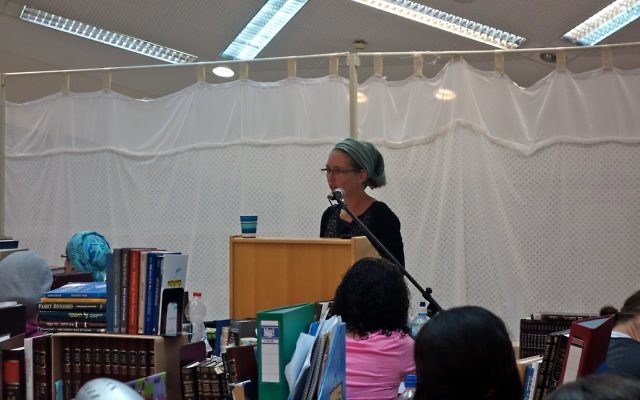First female leader for Israeli Orthodox shul
For the first time, an Orthodox synagogue in Israel has appointed a woman as spiritual leader; Carmit Feintuch is to help lead renowned Ramban Synagogue.

For the first time, an Orthodox synagogue in Israel has appointed a woman as spiritual leader.
Carmit Feintuch, a seminary teacher, is to help lead the renowned Ramban Synagogue in Jerusalem’s Katamon neighbourhood, alongside its rabbi, Benny Lau. “She will do everything that rabbis are used to doing apart from the things that, halachically, she can’t do, such as being chazan or reading the Torah portion,” Lau told The AJN.
She will address the congregation from the pulpit, give religious lectures, discuss matters of religious law or halachah with congregants, and care for them pastorally. Feintuch will be known by the title rabbanit.
Lau said that is is a model that can and should be replicated across the Diaspora, and suggested that it was long overdue. “It’s a step which, in my eyes, should have happened years ago and thank goodness we have taken it now,” he commented.
Ruth Halperin-Kaddari, one of Israel’s leading experts on the status of women in Judaism, said in an interview with The AJN, “This is very very important.”
She commented that it “didn’t happen in a vacuum,” noting that there are moves in some religious Zionist circles to bolster women’s status, and says that these are notably coming from men as well as women.
“The significant thing here is that this has become a move that doesn’t only belong to the realm of women,” she commented, observing that another key advocate of women’s advancement is Shlomo Riskin, an influential rabbi and mentor to many Diaspora rabbis who studied under him. Riskin responded to the appointment by saying: “In every community there is need to structure the use of women in to the role of spiritual leader,” Riskin commented to an Israeli news site.
Much of Israeli Orthodoxy opposes the integration of women to spiritual leadership roles. But Lau insisted that appointing Feintuch was “not radical” and represents “more of an evolution that a revolution.” His logic is that women have been taking greater roles in Torah study and the teaching of Torah for years and the move in to religious leadership is common sense
He said: “I believe it’s an example for the whole world – Orthodox communities have the ability to move with needs, and to keep halachah.”
NATHAN JEFFAY

comments